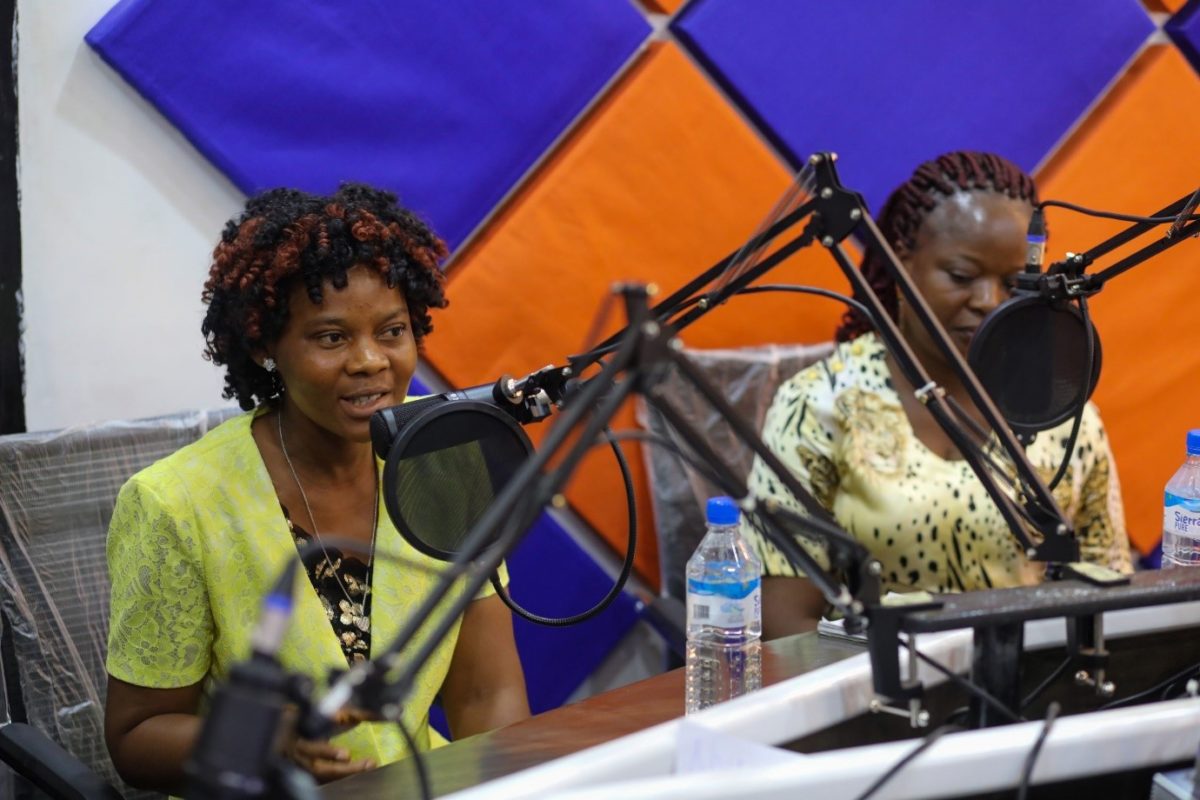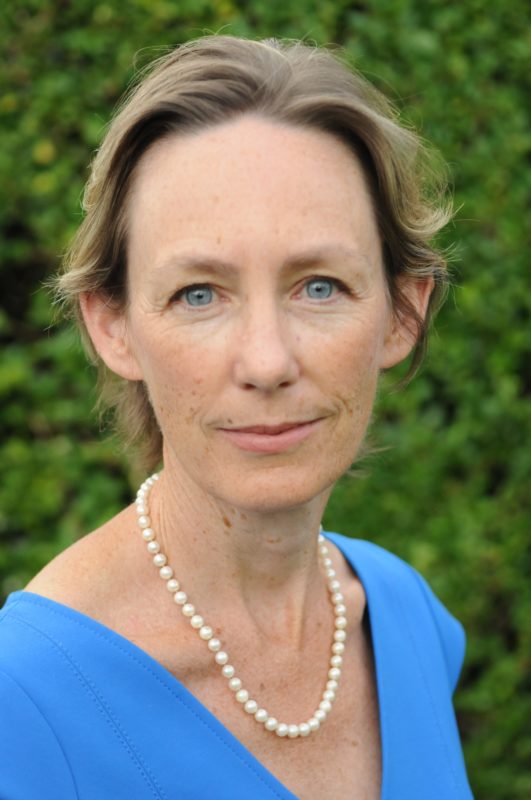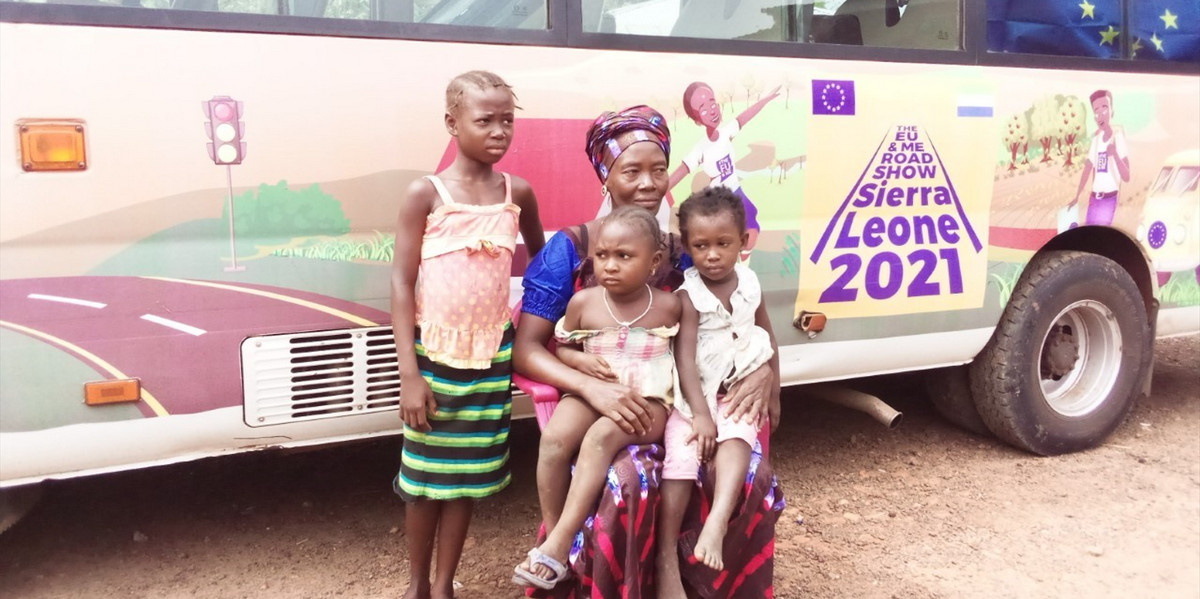Believe in who you are and help others believe in themselves
By Caoimhe de Barra, Chief Executive Officer, Trócaire
‘A leader is someone who believes in you and who gets you to believe in yourself’.
When I first read that quote several years ago, my own experience of being supported by excellent leaders came immediately to mind.
What I learned by reflecting on how they had helped me, was that if you see leadership qualities in a person, especially a woman, and you want to help them develop, you need to be explicit about what you see. We are still conditioned as women to underestimate our value and our worth; to undersell our ideas and contributions; to hold back; to consider all our shortcomings and how others might view us, rather than centring our strengths.
I can distinctly remember the handful of moments in my working life when someone said why they thought I was capable of doing something that I thought was too daunting, or that I hadn’t even considered putting myself forward for. In the main, the people who gave me those insights were women. Mostly they were a little older than me, or were my peers. They had walked the path I was on. They all gave specific examples of why I was able for something. Because of that, I believed them. I believed because it was tangible and I could feel the truth of it. I couldn’t deny it because they had given me the evidence and made me face up to my own fears.
We all have fears, but the worst thing anyone can do is let your fears diminish who you are and hold you back from achieving not only your own dreams but also from achieving a better world for people who are marginalised and whose human rights are violated.
As the famous novelist Alice Walker said, ‘The most common way people give up their power is by thinking they don’t have any’. We need to support women to unlock their power by giving them concrete reasons to believe in themselves, and by helping them to get over the inevitable obstacles that will be put in their way.
One woman’s story might help explain this further and put it in a wider context of how to achieve transformative change.
Aminata Kamara is Deputy leader of Konta Bana village, Marampa chiefdom in Port Loko District, north western Sierra Leone. Aminata became the first woman ever to get elected to this influential role on 10th February 2020.
Aminata, a married mother of four, is one of 25 women who form a women’s farmer group in Konta Bana known as Tamareneh Women Farmer’s Association. Aminata was selected as the group’s candidate for Deputy Village Headman ahead of the last election. Achieving gender equality in Sierra Leone has always been challenging, and Aminata’s election campaign did not go without backlash from the men she was up against.
In the run-up to the elections, male candidates launched a public smear campaign against her to sabotage her election hopes. They claimed her candidacy was illegal and made continual derogatory remarks against her because of her gender.
Despite these setbacks, Aminata and her supporters courageously carried on. On the campaign trail, Aminata and her supporters contested the negative perceptions of women in power, highlighting the struggles women face in day-to-day life. This enabled her to strengthen her campaign for more female voices in politics.
It was a hotly contested election, but Aminata came out on top, and was declared Konta Bana’s Deputy Leader. On winning, Aminata said, “I am very happy to have been elected Deputy Headwoman. This is the first time a woman has been appointed to such an important decision-making space in my community.” Aminata’s success represented a ground-breaking change for women in her native Sierra Leone. Overnight she became a role model for other women and girls with leadership aspirations.
What enabled her to get to that position?
Her first challenge would have been self-belief. Her group of women – Tamareneh Women Farmer’s Association – gave her their full support. She was elected by a landslide as the group’s candidate.
Her second challenge would have been the men in her own life and in the community. Amina and her peers were supported by Trócaire’s local partner, the Centre for Democracy and Human Rights (CDHR). CDHR led training for Aminata and her peers, and supported them to engage their male counterparts to address issues they are facing, such as accessing and owning land, and women’s inclusion at decision-making levels. Aminata and her peers were helped to identify how to engage men effectively and to get their support for women in elections. Throughout the campaign, CDHR worked with Aminata to support and strengthen her campaign through targeted training in leadership, public speaking and how to mobilise her network for success.
At the same time, Trócaire’s partner SEND supported Sierra Leone’s first all-female radio station, which broadcast engaging programmes that both encouraged women to put themselves forward for election and helped build up support amongst male and female voters for female candidates.

Globally, women are under-represented at all levels of decision-making, and achieving gender parity in political life is far off. At the current rate of change, gender equality in Heads of State/Government will not be reached for another 130 years. Gender parity in national legislative bodies will not be achieved before 2063.
We need to encourage women to believe in themselves. Next time you see an opportunity, tell a woman exactly what she is doing well, give her examples of where you have seen her strengths in action. Encourage her to face her own fears and give her the support she needs to deal with them, whatever they may be. Support her and you build a better world for all.

About the author
Caoimhe de Barra is Chief Executive Officer of Trócaire, CIDSE’s member organisation in Ireland, since October 2018 and a member of the CIDSE Executive Committee.
She has worked for Trócaire in a variety of roles between 1997 and 2015 including as Director of the International Division (2011-2015). She also worked as Country Director for Concern Worldwide in Malawi from 2015 to 2018.
Earlier this year, she received the Image PwC ‘Social Entrepreneur of the Year‘ Award jointly with Dr. Suzanne McClean of Rosabel’s Rooms.
Cover photo: Deputy leader Aminata Kamara, pictured with her three daughters, has become a role model for the women of Konta Bana in Sierra Leone. Credit: Trócaire

